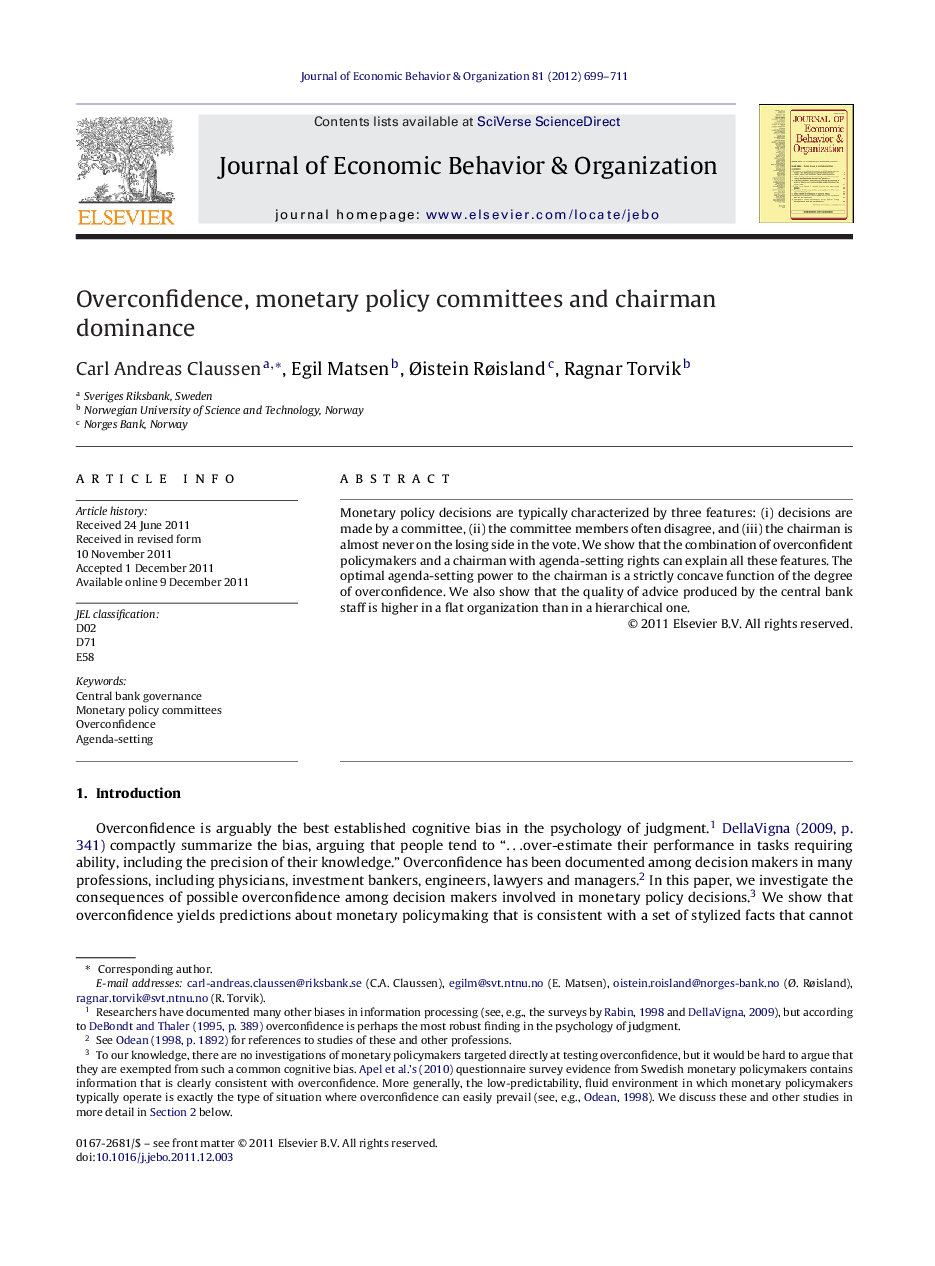| کد مقاله | کد نشریه | سال انتشار | مقاله انگلیسی | نسخه تمام متن |
|---|---|---|---|---|
| 883774 | 912349 | 2012 | 13 صفحه PDF | دانلود رایگان |

Monetary policy decisions are typically characterized by three features: (i) decisions are made by a committee, (ii) the committee members often disagree, and (iii) the chairman is almost never on the losing side in the vote. We show that the combination of overconfident policymakers and a chairman with agenda-setting rights can explain all these features. The optimal agenda-setting power to the chairman is a strictly concave function of the degree of overconfidence. We also show that the quality of advice produced by the central bank staff is higher in a flat organization than in a hierarchical one.
► Monetary policymakers may plausibly be subject to overconfidence.
► We show how overconfidence explains key institutional facts about monetary policymaking.
► The facts include the prevalence of monetary policy committees, and extensive dissents within these committees.
► In addition, overconfidence helps explain why central bank chairmen are given agenda-setting rights.
► The quality of advice from the central bank staff is higher in a flat organization than in a hierarchical one.
Journal: Journal of Economic Behavior & Organization - Volume 81, Issue 2, February 2012, Pages 699–711